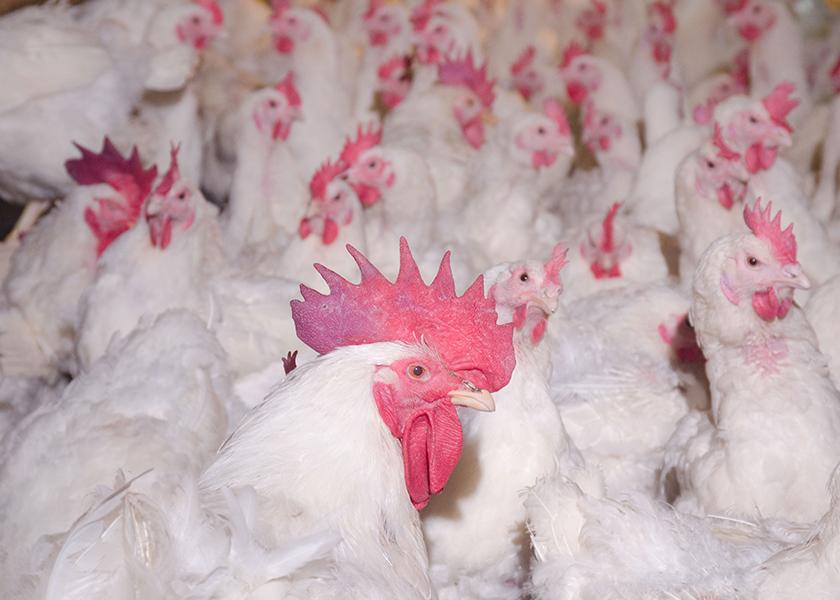U.S. Settles Claims Against Poultry Producers Over Worker Treatment

Three of the largest U.S. poultry processors have agreed to settle claims by the Justice Department over their alleged longstanding effort to share information about workers in order to drive down compensation.
Cargill, Sanderson Farms and Wayne Farms have agreed to pay more than $84 million in restitution to workers harmed by the information sharing to resolve civil antitrust lawsuits, according to proposed consent decrees made public Monday.
The government also sued and reached a settlement including a data consulting firm, Webber, Meng, Sahl and Co.
"Through a brazen scheme to exchange wage and benefit information, these poultry processors stifled competition and harmed a generation of plant workers who face demanding and sometimes dangerous conditions to earn a living," said Doha Mekki of the Justice Department's Antitrust Division in a statement.
Under the agreement, Cargill Meat Solutions is to pay $15 million, Sanderson will pay $38.3 million and Wayne $31.5 million.
The settlement was filed on Monday in a U.S. District Court in Maryland shortly after the lawsuits were filed.
Wayne Farms said it was glad to resolve the matter and the agreement shows its commitment to workers and farmers. Cargill denied wrongdoing but said it settled with the Justice Department to avoid litigation and distractions.
The department also said it had reached a settlement with Cargill and Continental Grain, which closed a deal on Friday to buy Sanderson Farms, the third-largest chicken producer. Sanderson will be combined with Wayne Farms, a Continental Grain subsidiary.
Under that agreement, the companies will not be allowed to lower the base pay of chicken growers, but will be allowed to offer incentives. The agreement also prohibits retaliation for growers who raise antitrust concerns with the government.
The Justice Department tried this year and failed to win convictions of executives of poultry supply companies on price-fixing charges. Two trials ended in mistrials while a third resulted in an acquittal.
Reporting by Diane Bartz in Washington; Additional reporting by Tom Polansek in Chicago; Editing by Andrea Ricci and David Gregorio)







